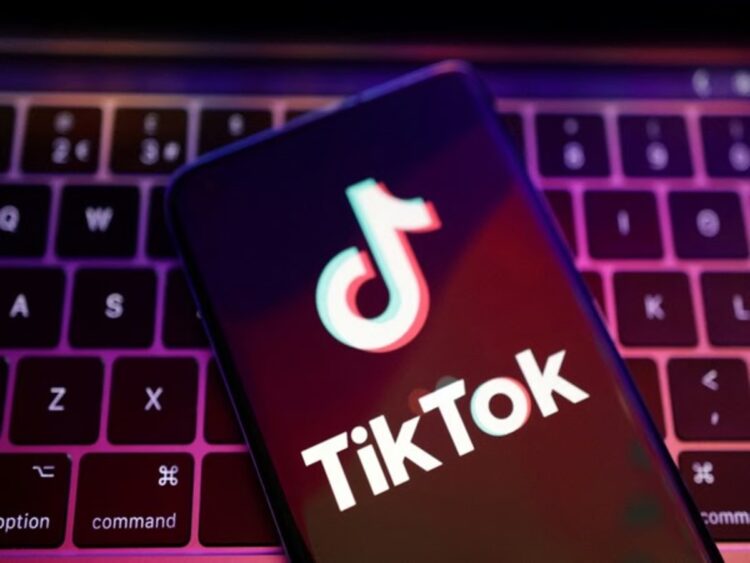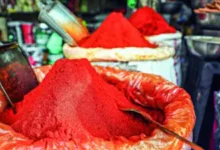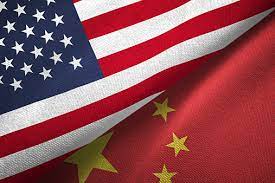The US and China are at odds over TikTok and its “secret sauce.”
A forced sale of the app and its “secret sauce” algorithm will undoubtedly result in Beijing’s retaliation, according to observers, as the US push to split TikTok from its Chinese parent company moves toward the Senate. Keep your hands off.

TikTok may face legal action in the US if it doesn’t sever its links to ByteDance, a massive Chinese digital company, as per new legislation that was approved by the House of Representatives last week.
However, a paradox has evolved in the fight for TikTok’s survival in the US: China has come out strongly in support of the firm, even as the company strives to persuade Congress of its independence from Beijing.
Analysts believe Beijing does not want to establish a precedent where a Chinese business is forced to sell one of its most valuable assets—including an algorithm that rivals can’t stop using.
The danger is “like daylight robbery,” economist Mei Xinyu of Beijing told AFP. “All things considered, the Chinese government’s actions so far have been very mild.”
“What the US government is proposing is way over the line.”
TikTok is a problem, according to US politicians and security officials, since China may access and use the enormous amounts of data the software gathers for influence and espionage.
The claims have been refuted by TikTok, which claims to have invested around $1.5 billion in “Project Texas,” which calls for the storage of US customer data domestically.
Still, a number of legislators and agencies, such as the FBI, are not persuaded.
Critics have said that ByteDance’s algorithm, which generates customized suggestions for TikTok users, should be severed from the data itself, since it is just a portion of the problem.
“The recipe for success”
Ever since TikTok was released for the global market in 2017, the ByteDance algorithm has played a major role in propelling the app’s phenomenal growth.
To provide more material that is specifically catered to each user, it analyzes vast quantities of user data, including their location and app activities.
Its specifics are kept under wraps, yet in only four years, it enabled TikTok to reach one billion users. Comparatively, it took Facebook almost eight years to accomplish that goal.
Although other social networking sites also employ algorithms to analyze user data to provide personalized suggestions, experts claim TikTok’s approach has been so effective that some people see it as the company’s most valuable asset.
Because TikTok is persistent, the algorithm is useful. According to James Andrew Lewis, a technology analyst at the Center for Strategic and International Studies (CSIS), people spend more time on TikTok than they do on other social media, as reported by AFP.
“This is the secret sauce that makes TikTok a success.”
Since the government of former US President Donald Trump attempted to outlaw TikTok in 2020, the algorithm has been at the center of debates around any possible sale of the app.
In that year, Beijing’s consent was required for the export of algorithms that make recommendations based on user data analysis since the Chinese government classified them as protected technology.
The economist Mei said that the action was “to a very large extent” due to US pressure on TikTok, even though no particular app or company was mentioned.
According to TikTok, its recommendation system for US consumers is kept on Oracle servers in the US together with their data as part of Project Texas.
But as The Wall Street Journal noted in January, workers on Project Texas were unable to keep up with the constant algorithmic updates made to TikTok by ByteDance personnel in China.
When AFP inquired about the Wall Street Journal article and where TikTok updates its algorithm, the company did not reply.
TikTok’s CEO, Shou Zi Chew, has previously said that the platform would not be “manipulated by any government” and that the Chinese government has never requested user data from US users.
“Plundering commercially”
Beijing authorities, on the other hand, have voiced their opposition to the TikTok law without holding back and have said that China would take all necessary steps to safeguard its interests.
“You’ve got the desire to protect the option for a relationship with the intelligence services, and you’ve got a little bit of nationalist pride because it’s so successful,” Lewis told CSIS.
“A portion of it is just annoyance at the Americans for attempting to coerce them into selling. With all that, Beijing trails ByteDance by a narrow margin.
Zhang Yi, the founder of the Guangzhou-based digital research company iiMedia, told AFP that Beijing wants to prevent a forced sale in order to safeguard Chinese companies.
“Once the precedent is set, there may be countless other Chinese companies that will face a similar fate in the future.”
Former editor of the nationalist Chinese publication Global Times, Hu Xijin, pleaded with ByteDance not to yield to pressure from the United States.
This month, he stated, “Commercial plunder is the essence of this matter.”
“As long as ByteDance remains firm, willing to shut down TikTok rather than give up ownership, it will create reverse pressure on the passage of the bill.”






